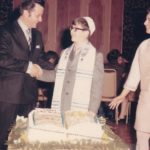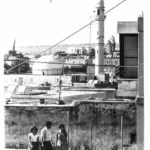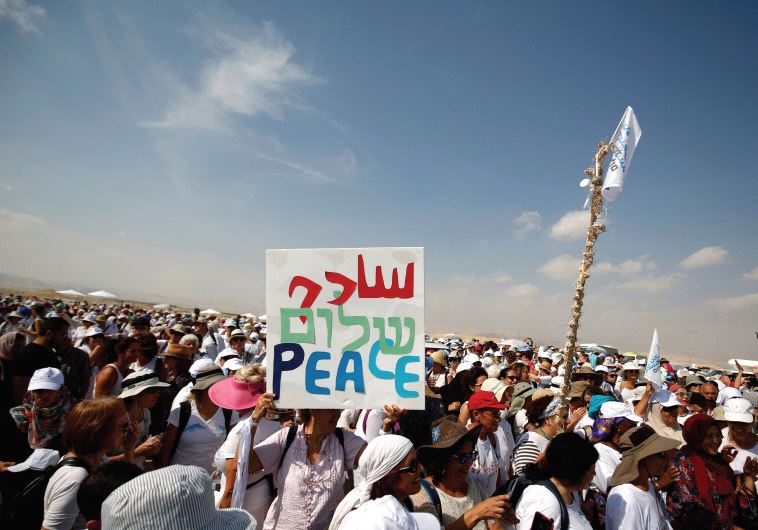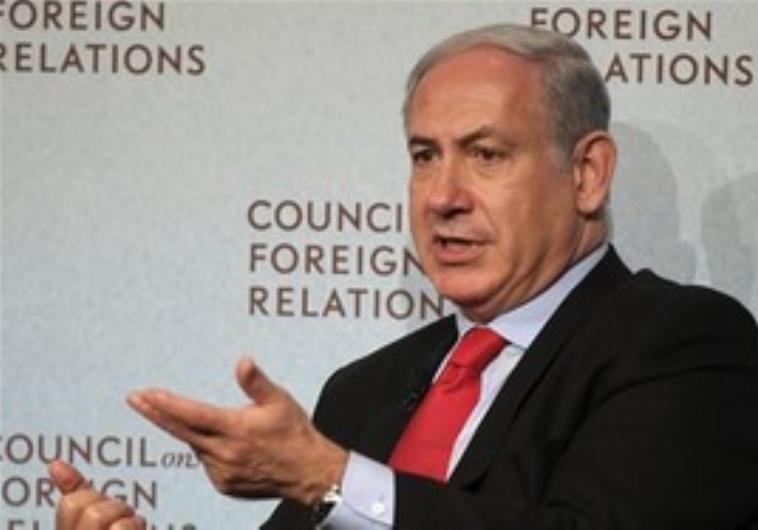
The Bar Mitzvah of Gershon Baskin
In 1972, at the age of 16, living in America, I already knew that Israel was the place where I felt home. I was a very political teenager, I started protesting against the war in Vietnam at the age of 12 and joined marches for equal civil rights for all citizens of the country where I was born. At 14, my family moved from a very Jewish neighborhood on Long Island to a very non-Jewish neighborhood. In my elementary school there were about 80% Jewish students and teachers. In my high school there were 3% Jewish students. It was at that time that a Jewish classmate recruited me to join the Zionist youth movement Young Judaea. I think I was mostly motivated to meet Jewish girls, but beyond all of those lovely Jewish girls I met, I was challenged to confront my identity and where I belong. I found intellectual challenges and inspiring leaders and I was given the opportunity to rise to positions of great responsibility and leadership myself. During my high school years, my general world view about freedom, equality and justice then merged with my Jewish identity and my decision to make Israel my home. Like most of the leaders in the movement, I spent a year in Israel after high school – half a year on Kibbutz Ein Harod (Ihud) and half a year in Jerusalem studying. At the end of the year, I went back to work in the Zionist movement’s summer camp, Tel Yehuda, in upstate New York. During that summer of 1975, I had a chance to absorb and understand the intensive indoctrinating year I spent in my new homeland. It was then that I came to the conclusion that if Israel is genuinely the democratic nation-state of the Jewish people, then in order for that to be true, Israel could not rule of millions of Palestinians in territories that Israel conquered in 1967, nor could it exclude the 18% of its Palestinian Arab citizens from full equality. In the winter of 1975, I penned my first op-ed article in a Jewish newspaper (The Jewish Radical from Berkeley California) calling for the creation of a Palestinian state next to Israel and a two states solution to the Israeli-Palestinian conflict.

Gershon Baskin in the Interns for Peace program in 1978 working as a community field worker in Kafr Qara
I was immediately attacked and challenged, mostly by Israelis that I knew. They told me that as a young American I was naïve, I didn’t (yet) serve in the Israeli army, and the sentence that repeated itself more than all was: You don’t know them! I understood that “them” was a generic term for Arabs, regardless of where they were from (Israel, the territories, Jerusalem, or anywhere in the Arab world). I didn’t have the confidence or the knowledge then to ask all of these experts on Arabs how they knew them and what was the extent of their knowledge. What I did know was that if I ever wanted to be able to have a voice on the most existential question facing the State of Israel, I would have to find a way to get to know “them” and to have credibility. I was fortunate to learn about a new project that was just being organized called “Interns for Peace”. The program searched for Jewish university graduates with community work experience to come to Israel for two years to live in Arab villages in Israel and develop programs of interaction with neighboring Jewish communities. I signed up the day after hearing about the program and in September 1978 I made aliya in the framework of Interns for Peace. After a training program of six months in Kibbutz Barkai, I went to live in the nearby Arab village Kafr Qar’a for the next two years. Within three months of living in the village, I found myself telling members of the kibbutz which was established in 1948 about their Arab neighbors. By the end of two years, I became one of the few Israelis who actually lived with the Arabs inside of Israel. I had gained the credibility that I wanted and needed. Under Prime Minister Menechem Begin I became the first civil servant in Israel working on Jewish Arab relations in a senior level position in the Ministry of Education under the National Religious Party’s head Zevulun Hammer. Under the Begin government I established the Institute for Education for Jewish Arab Coexistence which was directly associated with the Prime Minister’s Office and the Ministry of Education. We also established the Department for Democracy and Coexistence Education in the Ministry of Education (which no longer exists). I directed the institute until the fourth month of the first intifada when I left to establish IPCRI – the Israel Palestine Center for Research and Information – a joint Israeli Palestinian public policy think and do-tank which I co-directed for 24 years. During those years we developed and ran more than 2000 working groups of professionals from Israel and Palestine confronting every aspect of the relations between the two peoples.
From the beginning of the first intifada, reading the political directives of the United Leadership of the Intifada, I understood that the intifada, from a political point of view, was designed to lead to a peace process and that is why in March 1988 I established IPCRI. While most of the public in Israel was struck with fear that the Palestinian uprising represented, I was filled with hope for a new beginning between the people of Israel and the people of Palestine. IPCRI succeeded in its work from the beginning because it adopted what were then two very radical concepts – Israelis and Palestinians would work together in one institution, jointly run on the basis of full parity and equality; and our work began from the premise that the solution to the conflict is two states for two peoples. Our work focused on “reverse engineering” knowing where we want to get to, figuring out how to get there.
Today, our two societies are living at the highest levels of fear that we have experienced in 76 years. Most Israelis and Palestinians cannot imagine a reality of living in peace side-by-side in two states. We are consumed by fear and hatred which are completely normal given what we have all be through since October 7, 2023. But it is essential that we understand that our history did not begin on October 7, 2023. The horrific events that we have been living through and too many of us have died through are the results of everything that happened before October 7, 2023. The conclusion that I came to in 1975 that there are two peoples who are living on this land and that they both have rights to be here and to attain self-determination is the same conclusion that we must all come to now in 2024. The trauma that we are all now experiencing will only be healed by changing our reality from fear to hope.
We will return to a peace process. It will not be a repeat of Oslo because we all made too many mistakes in the Oslo process. We will undoubtedly make new mistakes but we must not make the same mistakes all over again. Oslo was a very naïve process based on unfounded trust. Building trust must be a corner stone of renewed peacemaking activities. Risk taking must be built on true confidence that the other side is indeed sincere in their desire to live in peace and that must be demonstrated by significant and irreversible actions that reflect the most basic value of a commitment to live in peace. Without that there will be no peace and therefore; those of us who understand how and why Oslo failed must take a leading role in teaching the lessons of the failures and designing a new course of action with much greater chances of success.
In the coming weeks, Israeli and Palestinian colleagues and I will be presenting some new initiatives which are based on the above. These initiatives reflect the necessity of ensuring that this war will be the last Israeli-Palestinian war. There will be a ceasefire at some time and there will be new governments in Israel and in Palestine. There will be increased political will of our Arab neighbors to help secure regional stability, security, economic development and cooperation. There will be more support from the international community to help Israel and Palestine to set a new course. With all of the skepticism and cynicism that peace will ever be possible, we must realize that it is essentially inevitable. We cannot continue to kill each other and to destroy the lives of so many people who mainly want to live a decent life with enough to support their families, to enjoy the calm and security of waking up a new day every day, to enjoy personal and national dignity and to create a better future for our children. We Israelis and Palestinians are not so different. Most of us, believe it or not, want the same things. This war has to teach us that if only we, if only our side seeks to achieve these things while disturbing the possibilities for the other side to achieve them, none of us will have them. There are no winners in war. There is no total victory. War only has losers and we have too many who have lost too much. Only through peace will the people living between the River and the Sea be free and secure.




